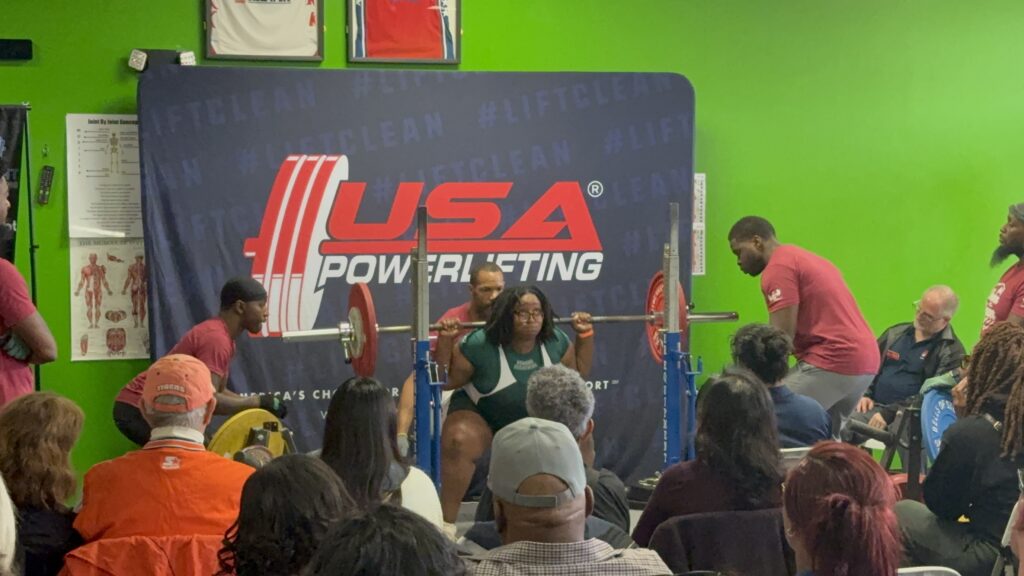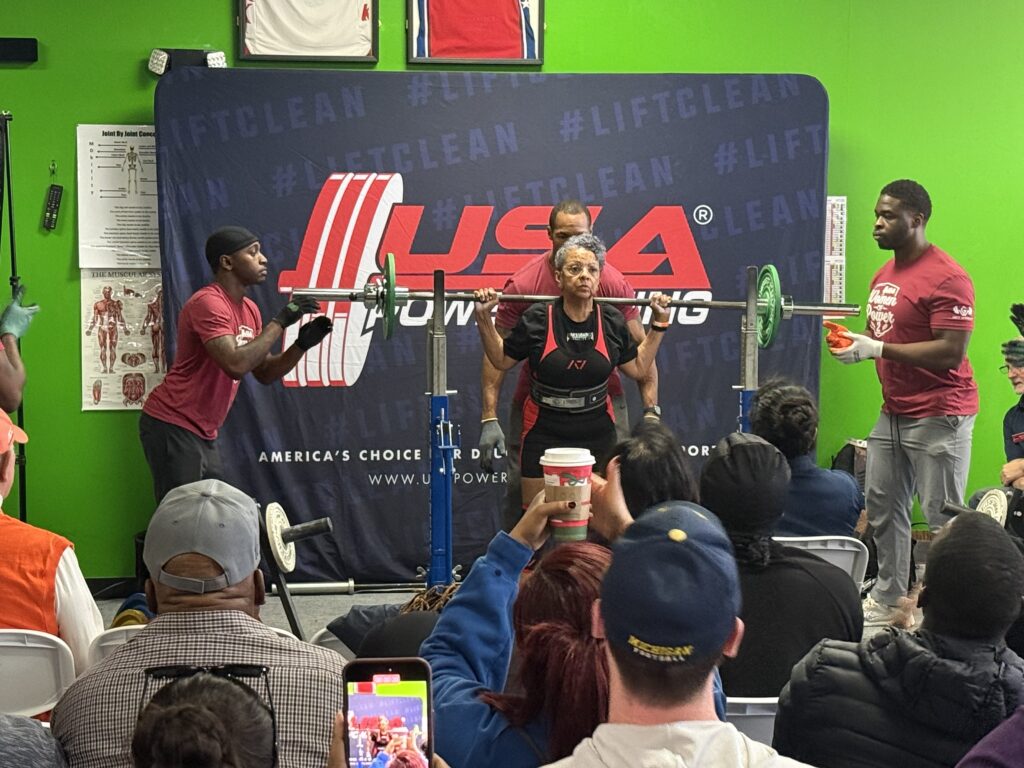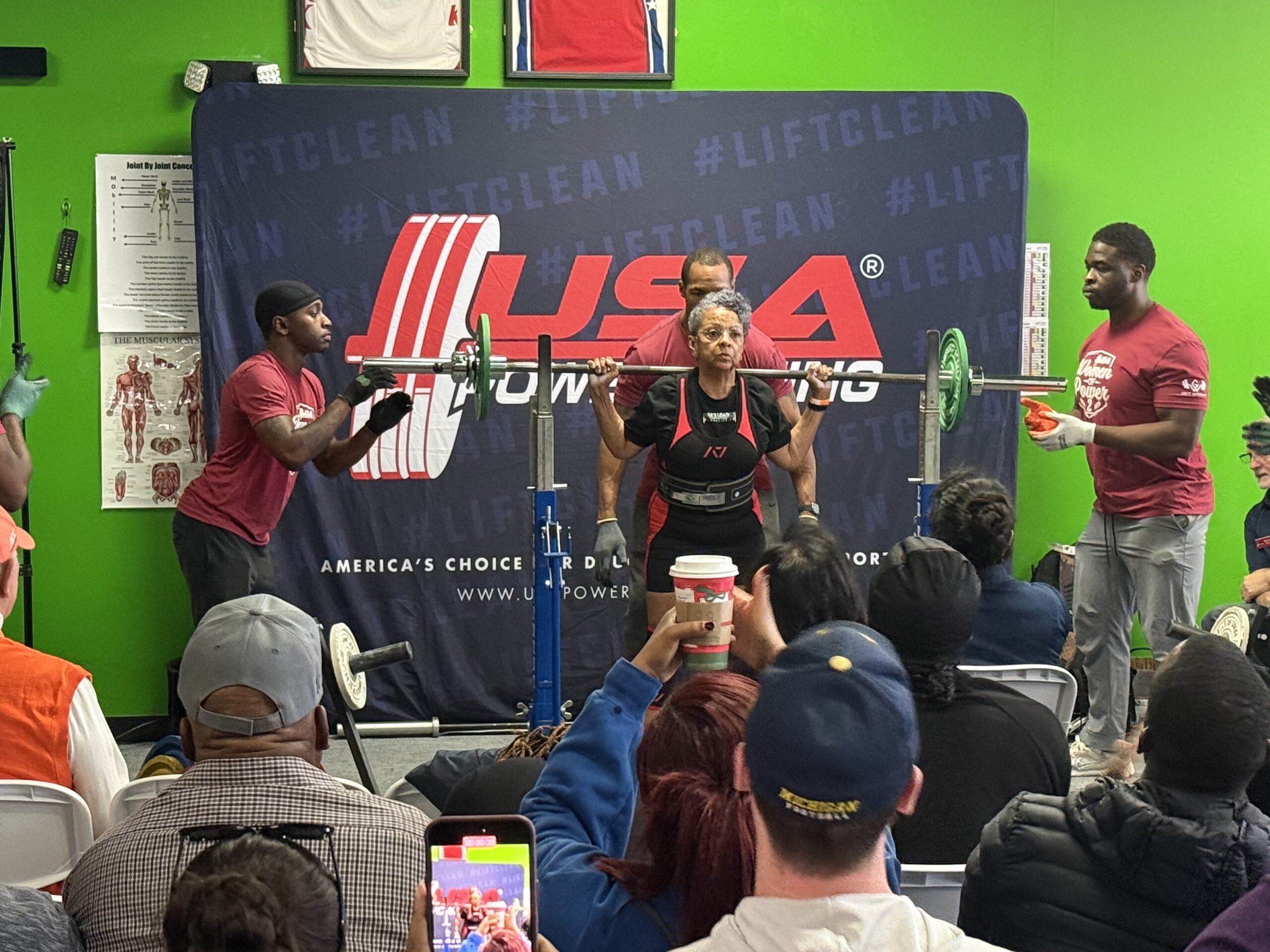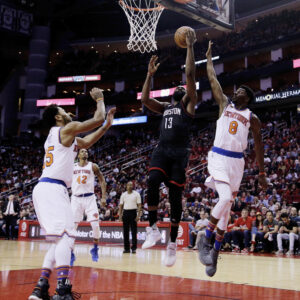LANHAM, Maryland — At a gym in metropolitan Washington, D.C., Black women lifted weights and encouraged one another as they took part in the second annual USA Powerlifting Women of Power Competition.
And while the contest stood out as something unique and new in the region, it is actually part of a growing trend of Black women being represented in the sport of powerlifting and participation in the sport overall, which has grown for at least a decade.
“It’s made me more confident in myself and my body,” competitor Taylour Deas, 34, of Laurel Maryland, told Black News & Views. “I’m proud of what I can do in comparison to the people I’m competing against, but really just competing against myself and just getting better and better over time,” she said.

Kenny Wright, owner of Get Right Personal Training and sports performance coach, organized the contest that took place at the Hit Fit Training Center in Lanham, Maryland. The main purpose of the competition was to give women, especially Black women, a chance to showcase their lifting skills in front of a crowd.
“I train a lot of women, particularly that powerlift. And I wanted to give them an opportunity to show their strength right in their own backyard,” Wright said. “That’s why we started it.”
Nationally, Black women have become more of a presence in powerlifting. Among the most prominent: Guinness World Record holder Tamara Walcott, multiple-world-record-holder Nora Langdon, and fitness center founder Ellen Ector.
Ernestine Shepherd, who, at age 89, is the world’s oldest female bodybuilder, said has noticed Black women having more of a presence in powerlifting.
“They feel that they want to be healthy and have a nice, strong body and have nice, firm muscles,” Shepherd, who lives in Baltimore, told Black News & Views. “All of that goes together with powerlifting.”
She added that even though she isn’t a powerlifter, she lifts heavy weights to keep her body in shape.
Black women showing their strength
The USA Powerlifting Women of Power competition in conjunction with Get Wright Performance Training, in Lanham, Maryland, included participants from 19 to 73 years old. Most of the competitors were from Washington, D.C., and Maryland, and one came from as far as New Jersey. Women competed in multiple categories.

One of the powerlifters who took part in her first Women of Power competition was JoAnne Lyons Wooten, who, at 73, was the oldest in the contest.
She got into lifting less than a year ago due to some health issues. Wooten had a lumpectomy as a treatment for breast cancer in November 2015 and had open heart double bypass surgery in November 2021.
She started working with Wright last year to get physically fit and strong, but never thought about powerlifting. Then one day, Wright mentioned to Wooten that he hosts powerlifting competitions for women. After getting the green light from her doctors that it was OK to participate, she decided to enter the competition.
“It is something I could say I never thought about,” Wooten said. “It is so much fun, and I’ve learned a lot about myself.”
Taylour Deas, the competitor from Laurel, Maryland, was also taking part in the Women of Power competition for the first time. She took part in her first competition — Ladies of Iron 2025 — as a registered powerlifter in May 2025 after getting a membership with USA Powerlifting.
The contest included more experienced competitors too.
Charletta Washington has been powerlifting for four years and participated in four competitions. Saturday’s Women of Power competition was the first event for the Upper Marlboro, Maryland, resident since coming back from shoulder and hamstring injuries.
“Powerlifting allowed me to build the strength back in the muscles that I had injured,” Washington, 48, told Black News & Views. “This is my home gym. … I wanted to be where I started.
Tarena Hulede was taking part in her second Women of Power competition. The resident of Lanham, Maryland, said that powerlifting has given her a new sense of confidence.
“I think as we get older, sometimes we forget that we can pick up new hobbies and try new things,” said Hulede, 29. “And so starting powerlifting was my way of trying something new and doing something that’s pretty successful.”
Lindria Dockett, a photographer in the Washington, D.C. area, is curating an anthology called “The Weight She Chose,” based on the stories of the women who participated in the competition. It will be an opportunity for the participants to tell their story.
“We all carry a lot of weight. Some of it is weight we choose, and a lot of it is weight that we do not choose. So the fact that they have decided to become lifters, they have decided this weight. So we’re going to go from that angle,” Dockett said. “And then we’re going to talk about all the different scenarios, the weight that we did not choose, but we still had to win and work through and go through strength, or use our strength and faith.”
Benefits of powerlifting
Clubs and social media groups of Black women taking part in sports have experienced a boom in the last 10-15 years. Black Women Who Lift Weights is among those groups. Still, at least one study has shown that Black women are less physically active than their white counterparts. Factors such as time, money, body image, and support are to blame, according to multiple sources.
A 2022 study from the National Library of Medicine found that close to 40% of non-Hispanic Black women had little to no participation in leisure-time physical activity. Lack of physical exercise is connected to health problems like diabetes, heart disease and cancer.
The contestants in the Lanham, Maryland, competition told Black News & Views they are happy to be part of the trend, and they would recommend powerlifting for Black women because it’s good for their health.
“It’s important that we as Black women engage our bodies and it impacts us physically, mentally, emotionally overall,” Wooten said. “It’s a good thing for us to do.”
“We have a lot of women that come to lift because it helps them get in shape. It helps them reach their fitness goals, but also it helps them to live a longer life,” Wright said.
Another benefit of powerlifting is that it builds a sense of community.
“When you look at the Black community, I think that it’s a way for us to come together and come together and do something meaningful … and build friendships,” Hulede said.
Wright said that Black women have contributed to the growth of powerlifting.
“The sport increases self-confidence and allows women another avenue for competing,” he said. “The sport attracts athletes from other sports that enjoy weightlifting and showing their strength.”






